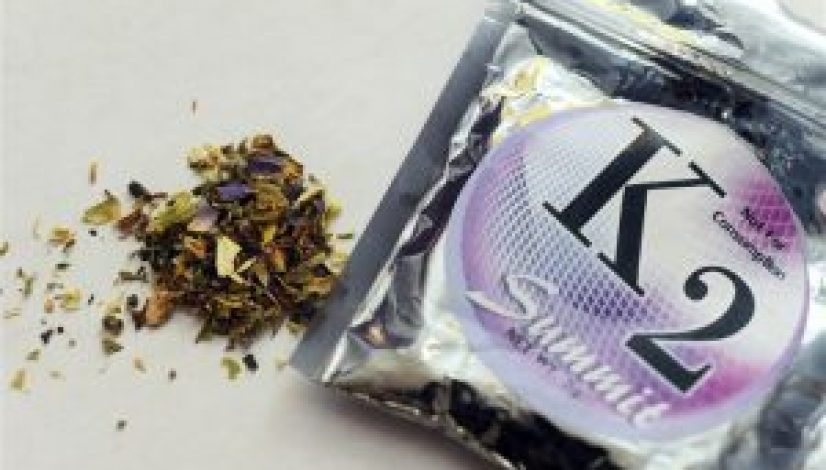Aaron Hernandez Smoked K2 Prior To Suicide
The formal toxicology performed as part of the autopsy for former New England Patriots tight end Aaron Hernandez “came back negative for all substances tested to include synthetic cannabinoids,” per the report issued by the Massachusetts State Police. That report came out two weeks after the athlete’s April 2017 suicide while still in prison. However, the police’s report seems to have omitted an interview with one of Hernandez’s fellow inmates which stated that the ex-NFL star had spent the last few days of his life smoking a lot of a synthetic cannabinoid drug that is known for causing hallucinations and psychotic episodes. Known on the street as “K2” this synthetic and highly dangerous substance can be difficult to detect using standard drug tests.
 An unredacted copy of the police report detailing the interview was obtained by the Boston Globe who published their discovery on Tuesday. As a result of the story a Massachusetts Department of Corrections representative spoke with the Globe stating that the inmate’s account was removed from the report so that it did not interfere or compromise any of the ongoing drug related investigations taking place at the Souza-Baranowski Correctional Center, where Hernandez had committed suicide by hanging himself in his cell back on April 19th, 2017.
An unredacted copy of the police report detailing the interview was obtained by the Boston Globe who published their discovery on Tuesday. As a result of the story a Massachusetts Department of Corrections representative spoke with the Globe stating that the inmate’s account was removed from the report so that it did not interfere or compromise any of the ongoing drug related investigations taking place at the Souza-Baranowski Correctional Center, where Hernandez had committed suicide by hanging himself in his cell back on April 19th, 2017.
At the time of his death Hernandez was just acquitted of a double murder in the South End of Boston that took place back in 2012, and according to some of the inmates that were interviewed after his death, they noted that he was particularly optimistic that the life sentence he received for the 2013 murder of Odin Lloyd could potentially be overturned. One of the prisoners interviewed asked, “What do you do when you get good news?…You celebrate, right?” However, Hernandez’s celebration seemed to consist of him spending his last few days in his cell smoking K2. According to one of the inmates, “…he wasn’t in the right frame of mind. That [s—] is [f—–] all these young kids up…They aren’t going to stop no matter what happens in here.”
Marilyn Huestis, a toxicologist who teaches at the Lambert Center for the Study of Medicinal Cannabis and Hemp at Thomas Jefferson University in Philadelphia spoke about K2 and its effects stating that: “We see many, many cases of people using synthetic cannabinoids and other novel psychoactive substances that are aggressive toward themselves.” She also explained that it is difficult for labs to keep up with and test for the near constant changes to the drug’s formulations. “These are so potent, the doses are so low, that when a person takes it you can only measure it in their blood for a short period of time,’’ Huestis said. “So labs will frequently miss it in the blood.”
 Through studies of his brain conducted after his suicide it was found that Hernandez also suffered from a severe case of chronic traumatic encephalopathy (CTE), a degenerative brain disease that is heavily linked to repeated head injuries and has the potential to create suicidal thoughts in those affected. This major condition compounded with the already dangerous psychoactive effects of a substance like K2 likely lead to Hernandez deciding to end his own life. K2 has created an epidemic in prisons resulting in the deaths of many inmates.
Through studies of his brain conducted after his suicide it was found that Hernandez also suffered from a severe case of chronic traumatic encephalopathy (CTE), a degenerative brain disease that is heavily linked to repeated head injuries and has the potential to create suicidal thoughts in those affected. This major condition compounded with the already dangerous psychoactive effects of a substance like K2 likely lead to Hernandez deciding to end his own life. K2 has created an epidemic in prisons resulting in the deaths of many inmates.
Tags
Aaron Hernandezaaron hernandez cannabisaaron hernandez k2aaron hernandez weedcannabinoidsSynthetic cannabinoidweed news


